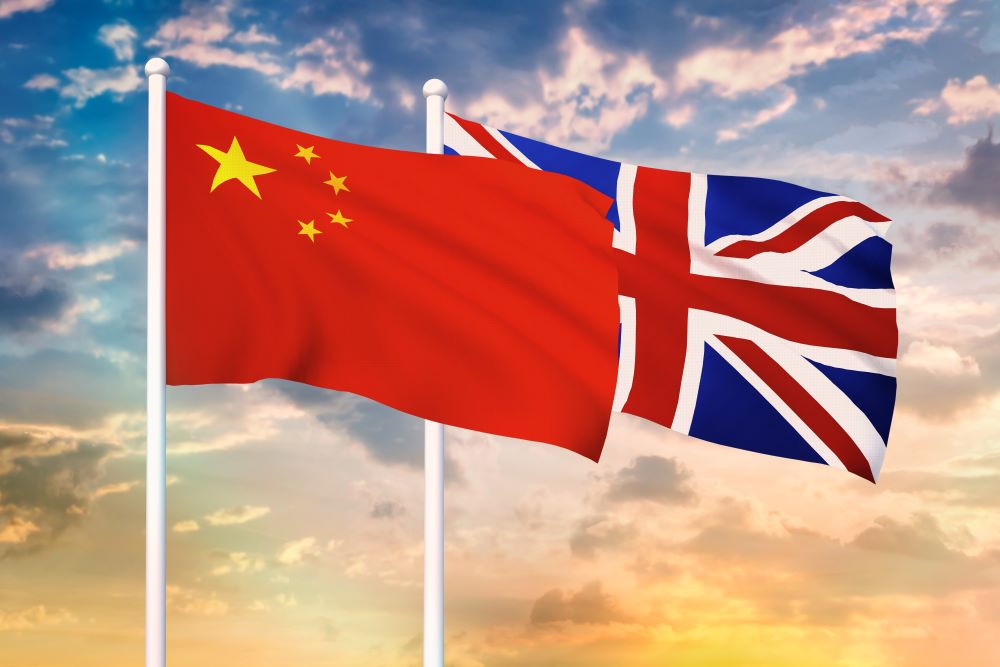
Prime minister Rishi Sunak has signalled a new approach to relations with China that would not prioritise free trade.
In his first foreign policy address during his speech at the Lord Mayor’s Banquet on Monday (28 November), Sunak said the “golden era” in relations between the UK and China “is over”.
The golden era phrase is associated with former chancellor George Osborne who used it at a time when he claimed Britain as Beijing’s “best partner in the West”.
However, in a rejection of the policy, Sunak said it was a “naive idea” that free trade would result in the emergence of democracy in China, reports the Telegraph.
Chinese influence
Sunak hinted at a more nuanced approach to China where the UK would raise concerns in areas such as human rights, while recognising “we cannot simply ignore China’s significance in world affairs”.
BBC political editor Chris Mason writes that the PM’s argument is that China exerts influence in areas from economic stability and climate change to food security, and that these issues can’t be addressed unless there is a relationship with Beijing.
Detail of what this entail will become clearer from the Integrated Review sets out the UK’s national security and foreign policy in the new year.
Sunak is under pressure from some in his own Conservative Party – such as former leader Iain Duncan Smith – to get tougher on China over what the UN has called “serious human rights violations” against Uyghur Muslims in the Xinjiang province.
Indo-Pacific focus remains
The Guardian reports that he stopped short of calling China a threat, something his predecessor Liz Truss did.
Sunak stressed the UK would deepen its ties with Indo-Pacific nations, given he said the region would deliver more than half of global growth by 2050.
“By deepening these ties we’ll help protect the arteries and ventricles of the global economy, supporting security and prosperity – both at home in our European neighbourhood and in the Indo-Pacific,” he said.
New knock to supply chains
With anti-lockdown protests breaking out across cities in China, fresh Covid restrictions threaten global supply chains yet again.
Thomas Gronen, head of Greater China at Fibs Logistics, told The Loadstar: “The protests are very local actions. What will impact the supply chain, sooner or later, are newly imposed Covid restrictions.”
According to the FT, Beijing is trying to shift the blame to local governments overzealous handling of coronavirus outbreaks amid unprecedented protests against President Xi Jinping’s zero-Covid policy.
Although China has not reined in the policy, there are signs its stance is weakening with the government refraining from even more drastic controls, despite record case numbers.
However, markets took fright at the protests with global stocks falling as fears resurface over both the domestic economic recovery and global supply chains, reports CNBC.



